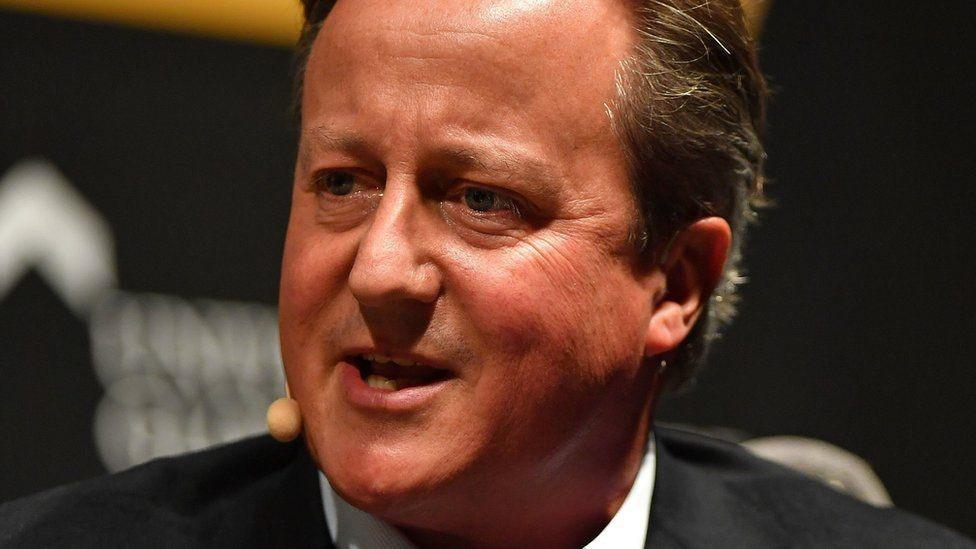Greensill: The questions still facing David Cameron
- Published
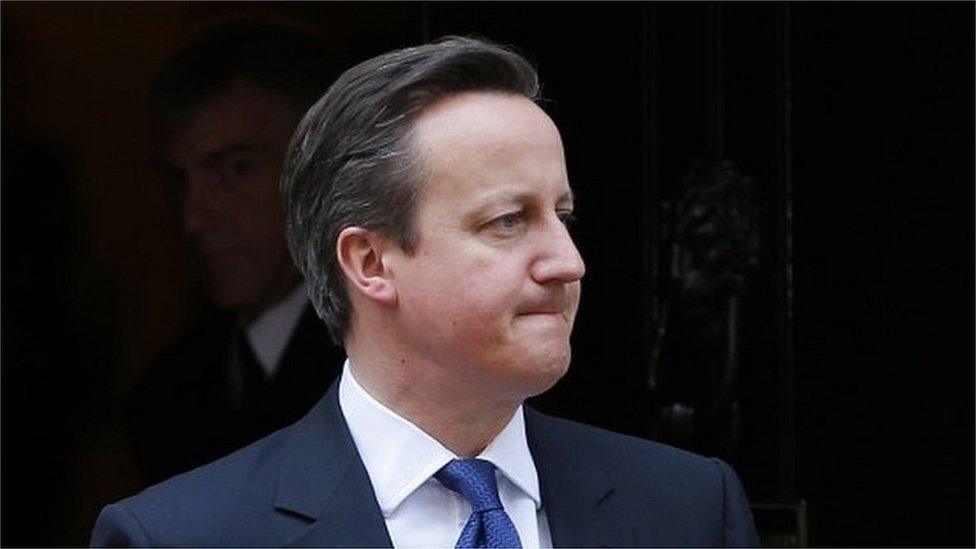
David Cameron broke his silence on Sunday to release a statement on the lobbying controversy swirling around him - but the former prime minister's critics say he still has questions to answer.
The representations he made to ministers and officials on behalf of failed finance firm Greensill Capital are now to be investigated as part of a government review.
So how did we get here?
It was on Friday, 19 March - more than three weeks ago - that the Financial Times first reported on businessman Lex Greensill, the former prime minister - and access to the current government.
Since then, via the FT and the Sunday Times, Labour and some disclosures by those under intense scrutiny to explain their actions, a growing picture has begun to emerge.
But before we plunge into the detail, why does any of this matter?
Forget the individuals concerned; forget what the rules are.
Over the years, the decades, the names change, the parties in government change, the regulations change.
In the end, one question stands above the others: Does it pass the sniff test? Does it feel right?
Mr Cameron clearly believes it doesn't, as he admits in his statement: "As a former prime minister, I accept that communications with government need to be done through only the most formal of channels, so there can be no room for misinterpretation."
Lobbying basics
Here's what you need to know before we start.
When David Cameron was prime minister, Lex Greensill, an Australian banker, became an adviser in Downing Street.
Two years after Mr Cameron left No 10 in 2016, Mr Greensill hired him as an adviser. The relationship, reversed.
And what marketable assets do former politicians have? They know how government works. And they know who works in government.
So they are often hired as lobbyists - people who attempt to influence the government.
Lobbying, by individuals, businesses, charities and trade unions, is part of the normal functioning of a democracy.
Interview requests
But can you pay for better access, by hiring those with great contacts? The clear evidence is you can. And so how transparent is this?
How many people can text the chancellor and a get reply?
Mr Cameron can, and Mr Cameron did.
How many can go for a "private drink" with the health secretary?
Mr Cameron can, and Mr Cameron did.
Every time further revelations about this ex-prime minister's quiet words and a private drink have emerged, we've asked for an interview with him.
Every time, he has said no.
Then on Sunday evening, out of the blue, Mr Cameron released a lengthy statement to the Press Association news agency.
Questions for Cameron
Minutes earlier, I had put the finishing touches to a list of questions I would ask Mr Cameron if he ever agreed to sit down in a front of a camera.
This piece was instantly rendered obsolete by the statement. Such is the journalist's lot.
But how many of my hypothetical questions did he answer?
When did you first meet Lex Greensill?
Mr Cameron does not specify a date for their first meeting in his statement.
Why did you bring Mr Greensill into Downing Street as an adviser?
Mr Cameron says it was the late Lord Jeremy Heywood, at the time the most powerful man in Whitehall, who brought Mr Greensill into government in 2011.
"In bringing him in, Jeremy was acting in good faith to solve a real problem - how to ensure companies in supply chains, particularly SMEs [small and medium-sized enterprises], could access low cost credit," says the former PM.
Why wasn't that appointment publicised at the time he was first appointed?
He does not address this.
How much contact did he have with you when you were prime minister?
Mr Cameron says: "The false impression has been created that Lex Greensill was a close member of my team, meeting with me on a regular basis. The truth is, I had very little to do with Lex Greensill at this stage - as I recall, I met him twice at most in the entirety of my time as prime minister."
How soon after you left Downing Street was he in touch?
Mr Cameron does not give a specific day and date in his statement, but says: "The idea of my working for Greensill was never raised, or considered by me, until well after I left office. I took up the position as a part-time senior adviser to Greensill Capital in August 2018."
And, once you'd left office and you had served out the two-year ban imposed on ex-ministers before they are allowed to lobby, on what terms were you hired by Mr Greensill?
"I was not a director of the company, and was not involved in the oversight of management, or the day-to-day running of the business. I was contracted to work for the company for 25 days per year," says Mr Cameron.
Was it explicitly your job to be his lobbyist?
Mr Cameron owns up to making "representations" to government ministers on behalf of his employer, Greensill, which fits most people's definition of lobbying, but he does not use the term "lobbying" in the statement.
He says: "My responsibilities included providing geopolitical advice to the leadership, helping to win new business, speaking for the company at conferences and events, and helping with plans for international expansion.
"As part of my work, I assisted with presentations made by the company overseas, including in the US, Singapore, South Africa, Australia and the Gulf. While visiting the Kingdom of Saudi Arabia in January 2020 to advise on their forthcoming chairmanship of the G20, I also - with Lex Greensill - met with a range of business and political leaders, including Crown Prince Mohammed bin Salman."
How much did he pay you?
The former PM does not reveal his salary.
What shares did you have in the company?
He does not say how much his shares would have been worth, had Greensill not collapsed. But he does hit back at press reports suggesting he had told friends they could be worth as much as £60m.
He says: "My remuneration was partly in the form of a grant of shares. Their value was nowhere near the amount speculated in the press."
We now know of four ministers you lobbied on behalf of Mr Greensill. Are there any more? How many have you texted? Phoned? Taken out for drinks or any other hospitality?
Nothing on this in the statement.
Was it a mistake to text and call the chancellor directly?
Mr Cameron insists he complied with all the rules and codes of conduct on lobbying, in his contacts with Rishi Sunak - and that his interventions did not succeed in changing government policy.
But he adds: "I have reflected on this at length. There are important lessons to be learnt. As a former prime minister, I accept that communications with government need to be done through only the most formal of channels, so there can be no room for misinterpretation."
What did you and Mr Greensill hope to achieve from a private drink with Health Secretary Matt Hancock?
Nothing in the statement on this.
Does all this prove you were right all along in 2010 when you were so outspoken about the perception of lobbying held by so many beyond Westminster?
In the wake of a string of lobbying scandals, the recently-elected David Cameron announced plans for a crackdown on lobbying. In 2010, he famously declared that the "far-too-cosy relationship between politics, government, business and money" had "tainted our politics for too long". He does not revisit this warning in his statement.
Questions for government
This is far from an exhaustive list of questions.
Labour is calling on the former prime minister to face a grilling from MPs, who will have their own lines of inquiry.
But the fact that the government has now launched an investigation into the affair may mean Mr Cameron's statement is the last we will hear from him on the subject for a while.
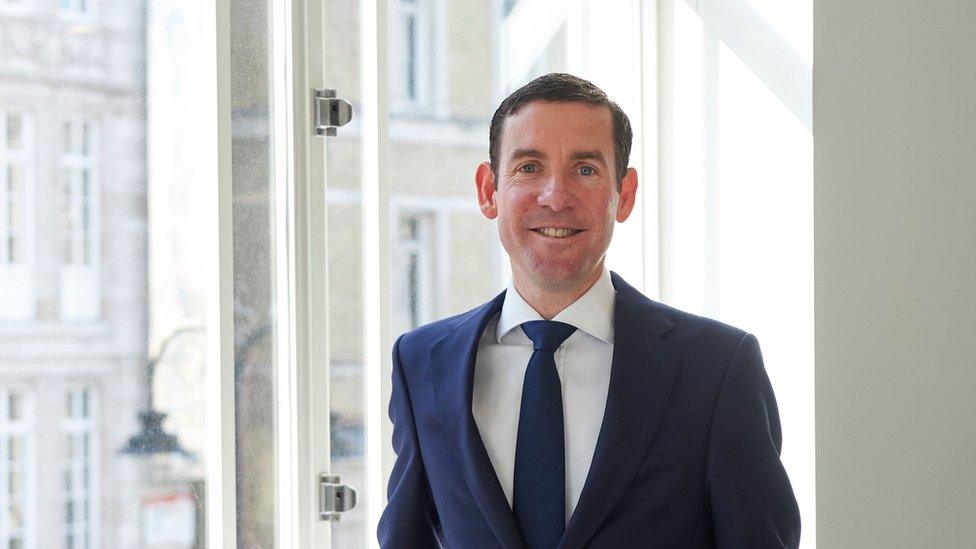
Lex Greensill was an unpaid government adviser
The government inquiry, headed by lawyer Nigel Boardman, is not expected delve into the rules governing lobbying.
Some, such as Labour former prime minister Gordon Brown, say former prime ministers shouldn't lobby for commercial purposes.
Mr Brown has suggested lengthening the current two-year period former ministers have to wait before they can start lobbying (Mr Cameron waited two years so he did not break that rule).
Is it possible to regulate away personal relationships and contacts?
Lobbying within the rules is perfectly legal, and a half-decent lobbyist will aim to further the aims of their employer, within the rules, by making the most of their contacts.
And so there are questions for far more people than just Mr Cameron:
For the ministers he lobbied
For Lex Greensill, who has also refused to speak publicly about any of this, but whose friends say his payment scheme for the NHS was offered for free
And for the government, over how it responded to Mr Cameron getting in touch, and whether the lobbying rules are good enough
- Published9 August 2021
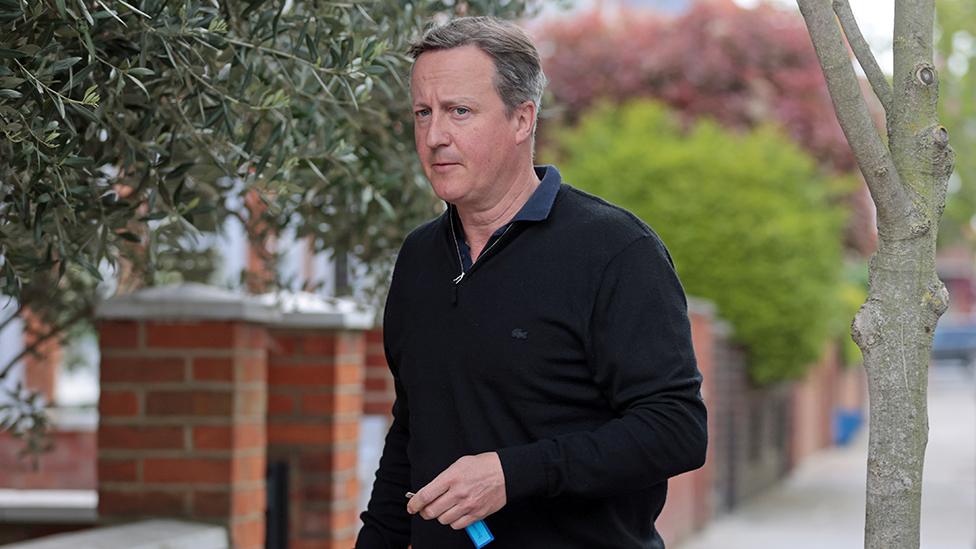
- Published12 April 2021
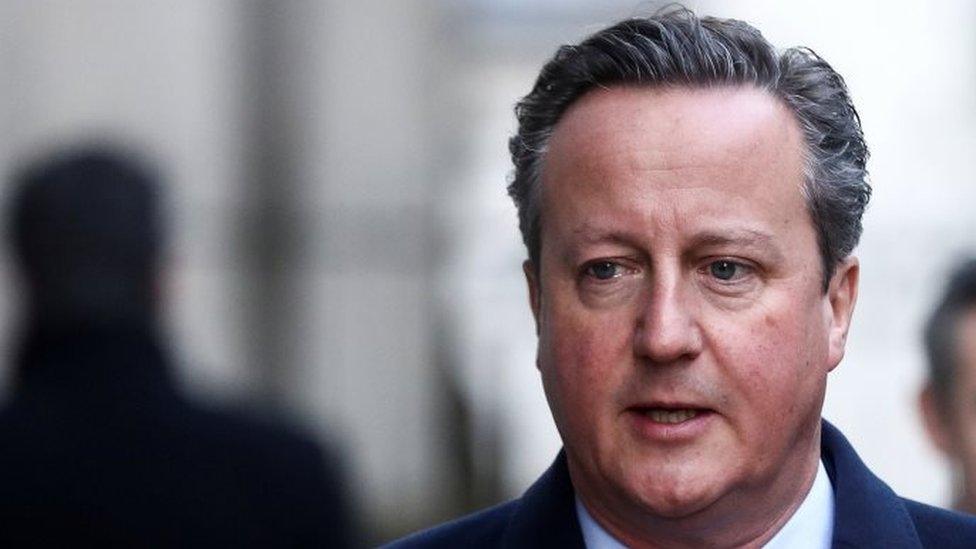
- Published31 March 2021
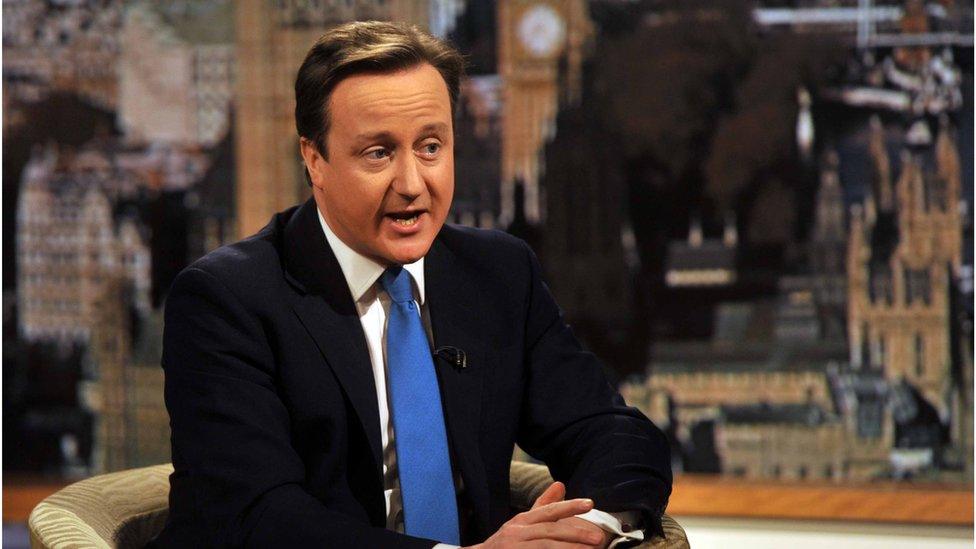
- Published30 March 2021
